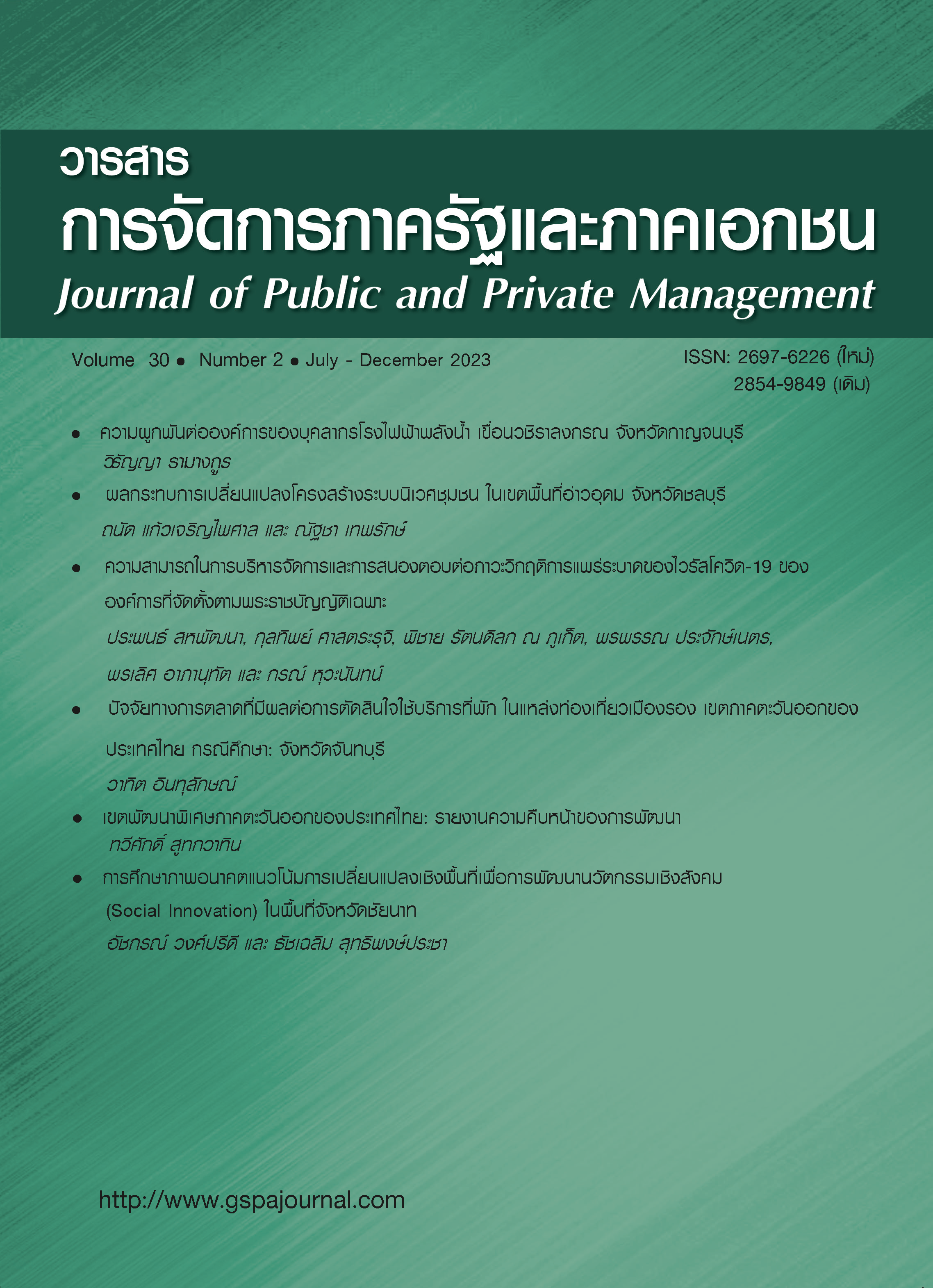A Study of the Capabilities in Management and Response of Organizations Established under a Special Act during the COVID-19 Pandemic
Keywords:
Capabilities in management, crisis response, organizations established under a special actAbstract
The objective of this research is to study the management and crisis response capabilities of organizations established by special acts in response to the COVID-19 pandemic. The study focuses on qualitative methods to collect in-depth data through document analysis, in-depth interviews, and focus group discussions from 9 organizations, selected by purposive sampling. The findings reveal that: 1) Organizations have preparedness plans and continuous management plans that can be promptly adjusted to respond to crisis situations; 2) Organizations have adapted their work processes by utilizing technology more extensively and the COVID-19 pandemic has accelerated the transformation towards digitalization for them; 3) Organizations have the flexibility to change their work practices, work from anywhere for example, as they are established by special royal decree, enabling them to adjust their practices to changing circumstances and challenges; 4) Organizations are capable of collaborating with networks because they have unique missions and tasks, resulting in diversity among their network members. Collaboration between different sectors is therefore a critical factor to achieve the goal and mission of organizations. However, organizations also face challenges in managing the COVID-19 pandemic, including problems with coordination and delays in working with external agencies, as well as budget constraints.
References
Henry, N. (1995). Public Administration and Public Affairs. Englewood Cliffs: Prentice-Hall.
Hood, C. C. (1991). A Public Management for All Seasons?. Public Administration. 69, 3-19.
Kariji, K., & Vinijnaiyapak, N. (2020). Collaborative Governance in the industrial project for sustainable job creation in 3 southern border provinces. Journal of Politics and Governance, 10(2), 1-20.
Kettl, D. F. (2011). Sharing power: Public governance and private markets. Brookings Institution Press.
Osborne, S.P. (2010). Introduction: The (New) Public Governance: A Suitable Case for Treatment?. In The New Public Governance?: Emerging Perspectives on the Theory and Practice of Public Governance. Stephen P. Osborne (ed.). London: Routledge.
Pollitt, C., et al. (2001). Agency fever? Analysis of an international policy fashion. Journal of Comparative Policy Analysis: Research and Practice. 3(3), 271–90.
Sadka, E. (2006). Public-Private Partnerships: A Public Economics Perspective. IMF Working Paper No. 06/77, Available at SSRN: https://ssrn.com/abstract=901868
Tangsupvattana, A., et al. (2011). Words and Ideas in Contemporary Politics (3rd edition). Bangkok : Chulalongkorn University
United Nations Department of Economic and Social Affairs. (2015). Responsive and Accountable Public Governance: World Public Sector Report 2015. Retrieved from https://publicadministration.un.org/publications/content/PDF/World%20Public%20Sector%20Report2015.pdf
USAID/COLOMBIA. (2020). FACT SHEET: RESPONSIVE GOVERNANCE. Retrieved from https://www.usaid.gov/sites/default/files/documents/Responsive_Governance_fact_sheet_4.5.21.pdf
Van de Walle, S. & Hammerschmid, G. (2011). The Impact of the New Public Management: Challenges for Coordination and Cohesion in European Public Sectors. Halduskultuur, 12(2), 190-209.
Downloads
Published
How to Cite
Issue
Section
License

This work is licensed under a Creative Commons Attribution-NonCommercial-NoDerivatives 4.0 International License.



